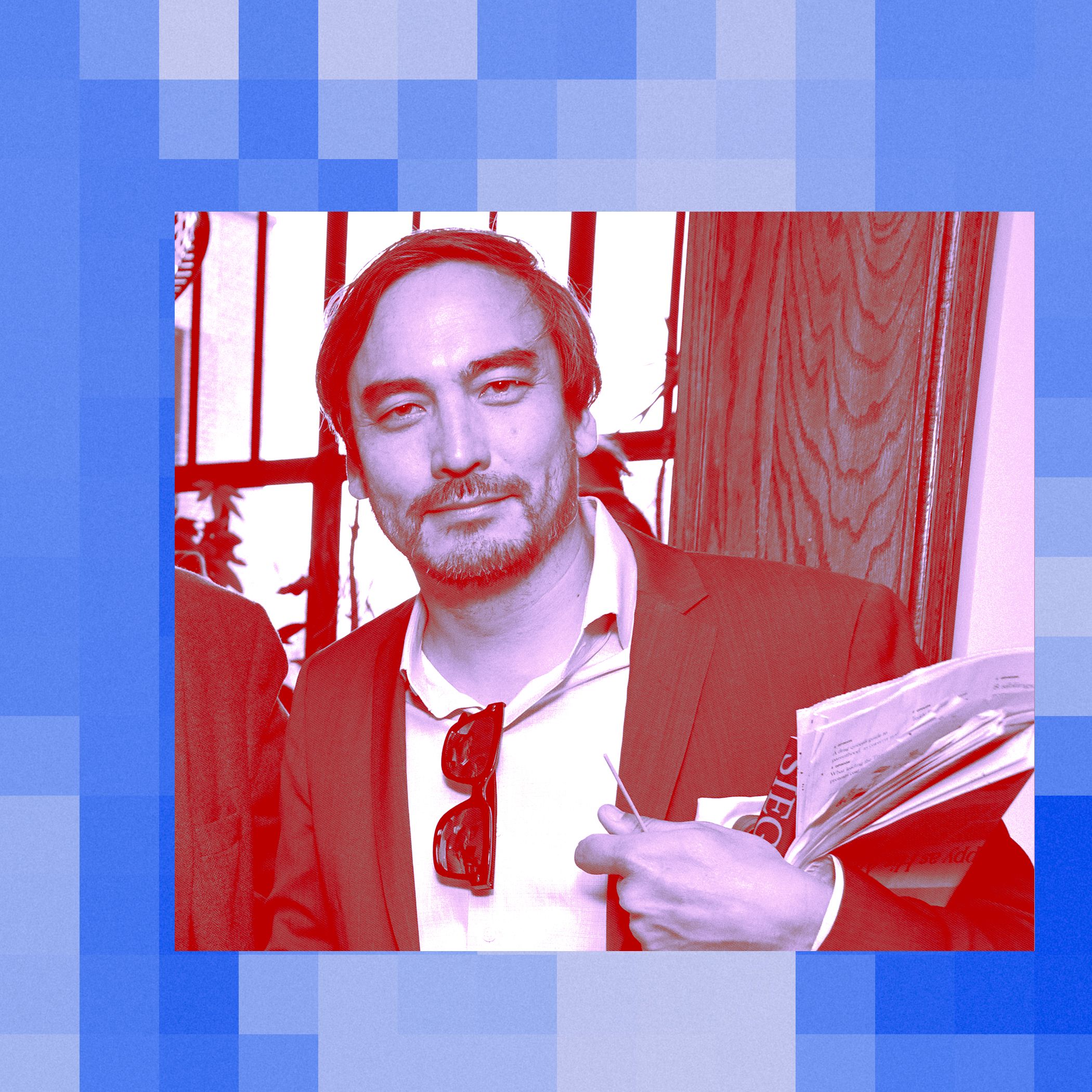Growing up in Toronto, Tim Wu had a classmate who was the progeny of Communist parents. His name was Cory Doctorow. Yes, the same guy who just published a book about enshittification. Though they shared a general world view, the boyhood pals also had arguments, with Wu typically taking a less radical stance than his buddy. “I read the Communist Manifesto in the eighth grade,” says Doctorow. “It was pretty reasonable.” Though the pair lost touch, they reconnected over the last couple of decades and are now friendlier than ever.
The relationship is worth mentioning because Wu—law professor, former FTC adviser, and Joe Biden’s special assistant for technology and competition policy—just published a book called The Age of Extraction—a high-minded companion to Doctorow’s gritty polemic. Both of them explain how tech platforms, once they get their claws in you, shift from serving you to serving themselves. As you might expect, Wu’s version tilts heavily toward the idea that our current Gilded-Age-level consumer abuse should be tamed by aggressive antitrust action.
Like a prosecutor skillfully laying out a case, Wu explains how platforms like Amazon, Google, and Meta use their market power and stickiness to exploit people’s habits and laziness. Ultimately, platforms extract their users’ money–through higher prices as well as fees and taxes levied at developers who use the platforms for commerce. The book poses a question regarding business empires: “How can their power be balanced to ensure broad prosperity for everyone?” Wu’s answer in part reverts to history—how regulators tamed AT&T, IBM, and others, and how technological advances like the internet reshuffled the deck and enabled new players to enter the market.
This is a bit at odds with the other premise of the book—that if regulators don’t curb platform power, “we risk a future in which our technologies help make the division and resentment that is the curse of our age.” Left hanging is the central question of the next four years—what are the chances that the Trump administration gets it right?
Extract Nation
In my view, Wu is a national treasure. He coined the term net neutrality. (The concept—which assures nondiscriminatory access to platforms—has been momentarily beaten down by the courts.) During the Biden days, he, along with FTC chair Lina Khan and assistant attorney general for antitrust Jonathan Kanter, helped thaw out what he calls Antitrust Winter, a free-for-all era of corporate consolidation and anticompetitive practices that empowered Big Tech.
He’s also a good writer. One felicitous trick in his bag is the invocation of obscure, even ancient precedents that provide illuminating insights into contemporary conundrums. To explain the value of net neutrality, Wu tells the tale of a 14th century Englishwoman who was refused lodging at a rural inn for unspecified reasons, and found herself abandoned in the dark; her successful court challenge established the principle that a “public house” must be open to the public.
The Age of Extraction is the third in a trilogy consisting of The Master Switch (about the importance of open platforms) and The Attention Merchants (which focused on how social media and online ads infected the media ecosystem).
I read this latest effort, though, with a bit of wistfulness. It was written before the 2024 election. Donald Trump is mentioned only once, and not in the context of his return to the White House. To be sure, a number of times Wu refers to scenarios where a generic autocratic strongman takes power—guess who comes to mind? But Wu didn’t want to write another Trump book. “I just felt it’s duplicative to say Trump is a crazy madman who is corrupted,” he says. Instead, he wanted to write on issues and ideas, in hopes that his work would retain relevance long after our current leader leaves the scene.
But right now, Trump is in the White House, presiding over the age Wu refers to in his book title. When I press him on this administration’s leadership in curbing Big Tech’s excesses, he tries to see the bright side. “The antitrust lawyers in the Justice Department are still there,” he says. He is happy that Lina Khan’s replacement, Andrew Ferguson, “at least isn’t trying to destroy the agency.” And some key cases brought against the tech giants in the Biden era are still alive, even if driven by inertia. How they will ultimately be decided, though, is not clear. The defendants of those suits—Meta, Amazon, et al—have founders who are big financial contributors to Trump and whose tongues are blackened by his shoe leather. Wu is worried. “I have gotten more and more nervous about the inherently corrupt nature of this administration,” he says.
Of course the tech companies themselves see things differently. Wu’s philosophy is the polar opposite of the libertarian ethos that Peter Thiel, Marc Andreessen, and other “techno-optimists” believe to be the key to innovative companies and a robust economy. Even more liberal tech leaders loathed the regulatory zeal of the Biden trustbusters.
Even with strong regulators in power, however, giant tech companies managed to do quite well. Some engaged in a practice that let them plunder the talent of startups without actually buying them. My friend M.G. Siegler calls these “hackquisitions.” Wu says if he were in charge he might question such tactics. Meanwhile, it’s not clear how diligent the Trump regulators will be in blocking any potential mergers. Especially since executives at the biggest firms are ardently courting the president. After all, when it comes to extraction, nobody tops Donald Trump.
AI and Antitrust
Wu deals briefly with AI in his book. He seems buoyed by the fact that OpenAI has managed to become a huge force despite the market power of giants like Google and Meta. AI, he tells me, is still in its idealistic phase. “The quarantine of AI from big tech is pretty important,” he says.
My reaction is—what quarantine? Just about all the new AI companies have deals with Big Tech. In any case, OpenAI has now announced it will itself be a platform—presumably one that could eventually engage in extraction. “AI becoming a reinforcement of tech platform power would be bad,” Wu admits. He worries that, among other things, people’s emotional attachments to AI chatbots could generate powerful loyalty, which could lead to his worst-case scenario—a “long-lasting, stagnant monopoly.”
Nonetheless, Wu is optimistic—at least in the long term. “Father Time is undefeated,” he notes. The history he shares is all about times when companies got so powerful that public clamor led to laws or enforcement that unleashed competition. New waves of technology can also topple lazy monopolists.
His boyhood pal tends to agree. “Tim’s a little more buttoned up than I am, and we have nuanced policy agreements,” says Doctorow. “But we are largely in roaring agreement.” Both of their books vividly and depressingly describe how Big Tech’s foot rests squarely on our necks. And both of them offer remedies that seem unlikely to come anytime soon.
This is an edition of Steven Levy’s Backchannel newsletter. Read previous newsletters here.




